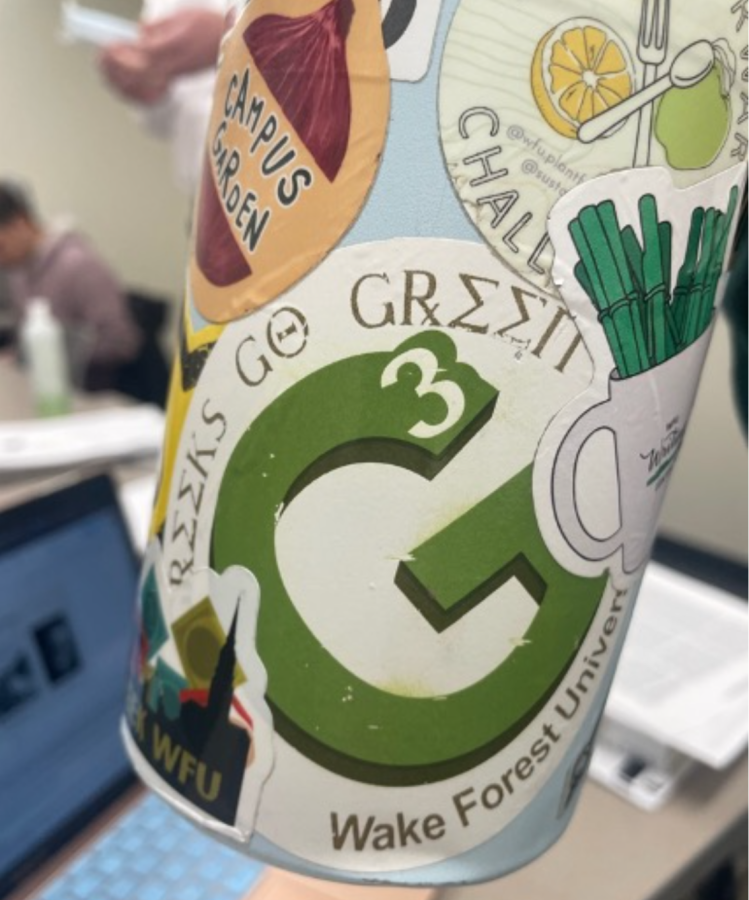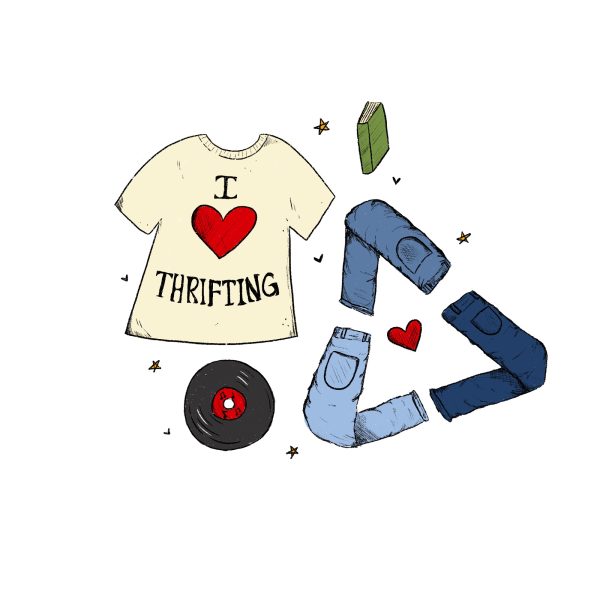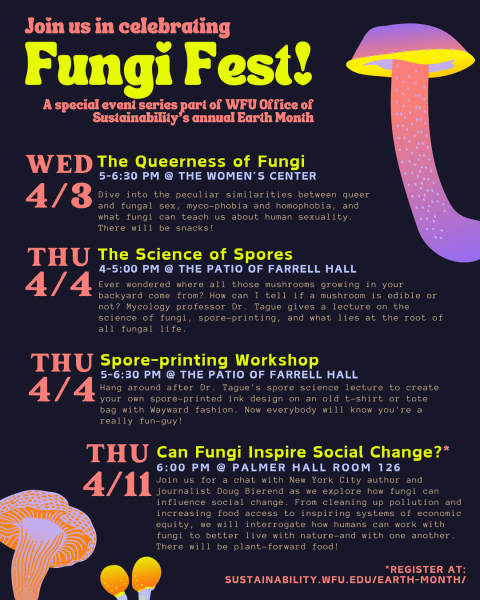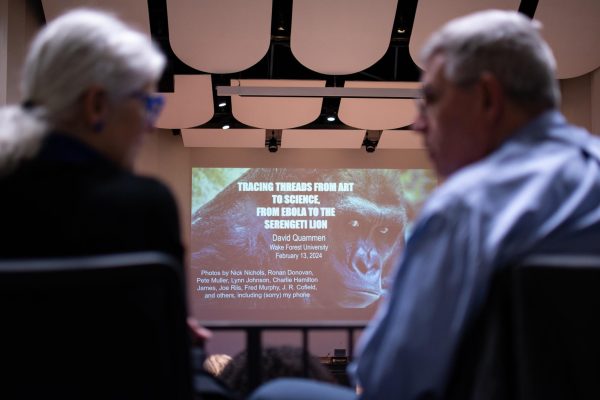Are Greeks really going green?
Students voice concerns over whether Greeks Go Green is a résumé builder or enacts real change
A Greeks Go Green sticker is displayed on a water bottle.
April 13, 2023
Students in Greeks Go Green, a Wake Forest sustainability group, struggle with the organization’s apathy toward change and lack of participation in advocacy efforts.
Greeks Go Green is a peer leadership group that consists of students from 20 different sororities and fraternities, with oversight and recruitment assistance from Brian Cohen, the assistant director at the Office of Sustainability.
“We don’t have any power to create any change,” said a frustrated Jade Donahue, a sophomore representative for Chi Omega in Greeks Go Green. With 51% of Wake Forest undergraduates involved in Greek life last year, Greeks Go Green’s ability to make a dent in campus sustainability efforts could be significant — if they cared.
“I would describe the impact of Greeks Go Green upon my chapter as minimal at best,” Donahue said.
Even in her own chapter, Donahue hit a wall in creating lasting behavioral effects among her sorority members. She envisions crafting impactful projects that shift the mindsets of her sisters, but that remains a dream.
But now is the time for urgency. The Intergovernmental Panel on Climate Change recently reported that humanity’s actions today are reshaping the planet for generations years to come. Scientists said even though the next decade is almost certain to be hotter, nations can still influence the climate for the rest of the century if they act quickly and decisively to reduce greenhouse gas emissions.
I would describe the impact of Greeks Go Green upon my chapter as minimal at best.
— Jade Donahue ('25), Greeks Go Green Member for Chi Omega
On a far smaller scale, when asked about Greeks Go Green’s current projects, many representatives sighed and explained the challenges of tackling a big problem like climate change.
The people who are supposed to care about the environment and lead others at a school dictated by Greek life are not following through with their advocacy, members said, even though they are aware of the ticking clock.
“I have a lot of stuff that I want to do, but I keep forgetting to do it,” said Tatiana Bicalho, a sophomore representative for Kappa Beta Gamma. “So, I honestly haven’t really done anything.”
The intentions of the students in the organization vary. There are some who do not even plan on doing anything to improve the sustainability of campus.
“People do clubs just to get them on their resume,” Andrew Dollus said, a sophomore representative for Sigma Alpha Epsilon. “So sometimes people aren’t joining them to get things out of it.”
Although it seems like everybody loves and supports sustainability to the public, the burden of going to bi-weekly meetings has proven to be too much for some members of the group. This creates further problems in enacting even the smallest changes like using less water, turning off lights, avoiding plastic water bottles, eating less red meat or using campus shuttles instead of driving short distances, as the club is dependent on peer leadership.
“We are getting into the time of year where it gets tough because people are overloaded right now,” Cohen said. “There has been a little bit of a drop off.”
“Even now, there are some days when you show up, and it is literally six people in a room when usually there are 20 people,” Bicalho said.
These are the same students who can dedicate hours to their respective Greek chapter to plan mixers and attend chapter on a weekly basis but cannot attend an hour-long meeting to plan sustainability awareness, which is a top priority of the university.
“The reason why people don’t show up is because it honestly is kind of hard to enact most of the things we are proposing,” said Berkeley Scharf, a sophomore representative of Kappa Kappa Gamma.
The struggle is that most of these projects can take weeks to create. Projects range from simply recycling plastic containers and paper to having a speaker present at chapter, but they all depend on the representatives’ drive to push for projects in meetings and chapters.
The reason why people don’t show up is because it honestly is kind of hard to enact most of the things we are proposing.
— Berkeley Scharf ('25), Greeks Go Green Member for Kappa Kappa Gamma.
“It is a lot of trial and error to see what works for people,” said Andrew Calfa, a junior change agent for Alpha Kappa Psi. The change agents have more involvement than representatives because they attend more meetings with Cohen.
Greeks Go Green has been an organization at Wake Forest since 2011, so there has been ample time for Cohen to understand what works best at ensuring that students practice what they preach.
At a time when there should be no excuses, there appears to be an abundance in Greeks Go Green. In fairness, the excuses closely mirror those of leaders of developed nations who are also far from meeting their carbon-reduction pledges under the 2015 Paris Agreement.
To further encourage representatives to facilitate their chapters’ involvement in sustainability, Cohen created a competition that holds them accountable with a point system.
“It’s not perfect, but it is definitely better than nothing,” Calfa said.
The bar is low for students and their involvement, but many do not seem to care about achieving the bare minimum. Cohen is not asking for much from students, but it appears they would rather spend their time elsewhere than fulfill even the most minimal environmental actions.
“I think Brian Cohen is doing the best that he can, and the students are not fulfilling their potential,” said Caroline Hawkins, a former representative for Delta Zeta. Hawkins left Greeks Go Green because she did not have time to participate and was not active enough.
The root of the problem is that the leaders who are supposed to encourage environmental sustainability within their Greek organization fail to take initiatives seriously.
“You can’t make people care,” Cohen said.




















